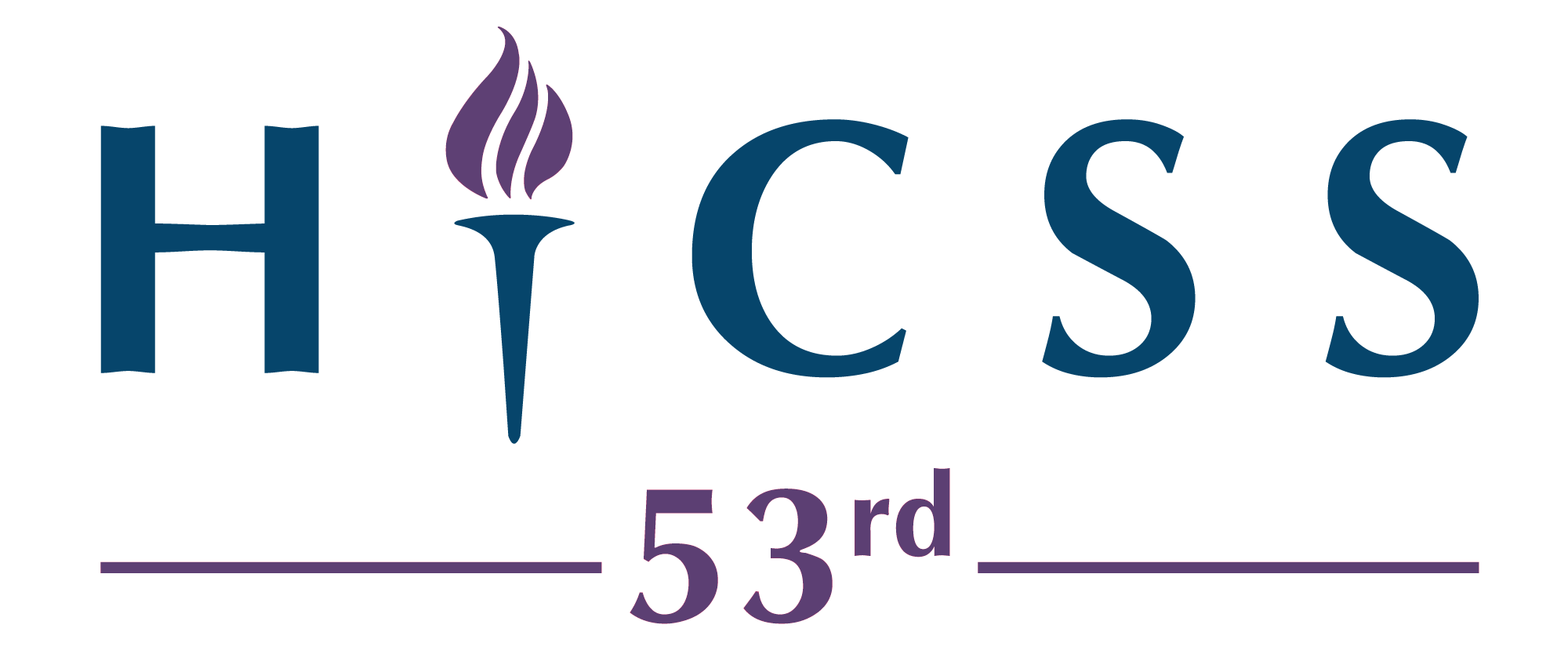HICSS - 53 Digital Government Track
53rd Hawaii International Conference on System Sciences
January 7-10, 2020 - Grand Wailea, Maui, HI, USA
Overview
Minitracks
Tutorials and Workshops
Other Links
Challenged Democracies:
The Impact of Digital Government on Democracy and Democratic Institutions



Description
This minitrack is an interdisciplinary gathering of digital government, information and social science researchers and practitioners. While much research has focused on the benefits accrued to democratic processes and institutions through technology adoption and use by governments, little attention has focused on potentially harmful developments such as attacks on democratic elections; the creation of falsified civil society groups and citizens accounts designed to sow division and affect elections and other civic processes; the falsification of citizen participation submissions via online engagement tools; the impacts of public-private partnerships that utilize private networks and technology infrastructures that do meet public sector privacy, security, public data, records retention, or other public sector legal or regulatory requirements; and other efforts.
This minitrack seeks papers that explore challenges to democracy, in general, and democratic institutions, processes and behaviors caused or impacted by social media, information flows and technology. More Specifically, we would like to encourage questions about the impact of digital government applications, implementations, and practice on democracy and its components.
We seek research papers (empirical and theoretical) which include types of questions, but are not limited to the following:
- In what context and circumstances do applications and uses of digital government may threat or harm institutions of government, citizens, and others in the public sphere?
- What is the impact of social media platforms in democracies in general and on participation and representation in liberal democracies in particular?
- In what ways algorithms or artificial intelligence biases extend vulnerabilities of democracies? What are the available solutions to such implications?
- What strategies, policies, and other efforts can, do, or should governments, citizens, civic groups, and others engage in to ensure democratic principles in the face of potential threats from technology-enabled government?
- What is the impact of big-data analysis and surveillance by public sector or intermediaries on privacy principles?
- What are the implications for adopting innovative uses of social media from non-government contexts to the government context?
- Are social media platforms increasingly another branch of government that require ‘checks and balances’?
- In what ways do online power dynamics impact the electoral systems in democracies?
- What are the implications for government use of digital technologies that provide inaccurate information to the public and/or sound false alarms in emergency or security-related matters?
- What are the considerations and implications for open, but potentially biased, data?
- How do governments engender trust in the institutions of governments in an era of “fake news” and “alternate facts” increasingly promoted and enabled via digital sources?
Minitrack papers should be submitted online via the HICSS submission system by June 15, 2019.
Minitrack Leaders
John Bertot is Professor at the University of Maryland's College of Information Studies. He also serves as Co-Director of the Information Policy & Access Center. His research and teaching focus on information policy, equitable access, and public service innovation. He served as editor of Government Information Quarterly from 2000-2015, and is past-president of the Digital Government Society.
Karine Nahon is an Israeli information scientist in the area of information, technology and society. She holds a dual position as an associate professor in The Information School at University of Washington and the Interdisciplinary Center Herzliya. In July 2017, Nahon was named #24 on Forbes' list of 50 Most Influential Women in Israel. Her co-authored book “Going Viral” was awarded Best Information Science Book Award by the Association for Information Science and Technology and the 2014 Outstanding Academic Title Award by the American Library Association."
Paul Jaeger Ph.D., J.D., is Professor and Director of the Master of Library Science (MLS) program of the College of Information Studies. In addition, Paul serves as the college Diversity Officer and Co-Director of the Information Policy and Access Center at the University of Maryland. Dr. Jaeger’s research focuses on the ways in which law and public policy shape information behavior, particularly for underserved populations. He also researches disability and accessibility, information and human rights, e-government, and social theory of information.ut fugit, sed quia consequuntur magni dolores eo
Co-Chairs
John Bertot
(Primary Contact)
University of Maryland College Park
University of Maryland
College Park, MD 20742
Phone: +1-301-405-4252
Email: jbertot@umd.edu
Karine Nahon
Raphael Recanati International School
Interdisciplinary Center (IDC)
Herzliya, Israel 4610101
Phone: +972-9-952-7272
Email: knahon@idc.ac.il
Paul Jaeger
College of Information Studies
University of Maryland
College Park, MD 20742
Phone: +1-301-405-1742
Email: pjaeger@umd.edu
